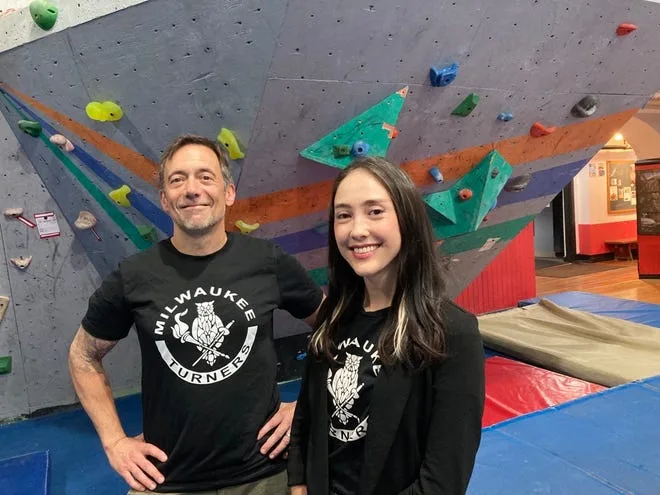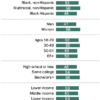
Wisconsin spends about $400,000 a year to house just one youth in its juvenile correction system.
A group of Milwaukee advocates, foundations and state officials wants to use that same amount to fund organizations to keep youth out of juvenile detention centers.
Zero Youth Corrections aims to award up to $400,000 to fund groups working on advocacy and policy issues that prevent the impact of the criminal and legal system on young people. The grant is providing two grants with a maximum award of $200,000 each.
“The goal of what we are trying to do is in the name — Zero Youth Corrections,” said Krissie Fung, operations and grants manager for the Milwaukee Turners. “We think it is a no-brainer that young people should not be incarcerated. Obviously, we are not able to accomplish that with $400,000 or $200,000 at a time, but that is the goal.”
The Turners, the city’s oldest civic group, is one of the lead organizations that comprise the Zero Youth Corrections committee. It includes the Washington, D.C.-based Public Welfare Foundation and the Department of Children, Youth and Family Services, a division of the Milwaukee County Department of Health & Human Services.
Nonprofits or groups working in collaboration can apply for funding. Grant proposals are due 11:59 p.m. Sunday, Aug. 13, and can be emailed to ZYC@milwaukeeturners.org. More information on grant parameters can be found at www.milwaukeeturners.org/zyc.
This year, the committee is focusing the grants on policy and advocacy work that reimagines youth justice through the lens of prevention, reduction, intervention, organizing and/or community support.
Proposals, Fung added, should be “creative and innovative about advocacy and policy solutions” that could change systems that negatively harm justice-involved youth.
The goal is to move away from just triaging the needs of young people affected by the criminal justice system to looking deeper at the causes of violence, inequity or lack of resources in certain areas, said Emilio De Torre, The Turners’ executive director.
“Focusing on policy and advocacy in a more macro way, we might be able to impact many more young people,” he said.
Last year, Zero Youth Corrections awarded a combined $396,000 to two groups — Paradigm Shyft and Your Move MKE.
Paradigm Shyft got $200,000 to work with Black, Indigenous and people of color or BIPOC youth at risk for interactions with the criminal justice system, with a focus on gun possession.
Your Move MKE got $196,000 to support programs designed to break the cycles of poverty and trauma through positive activities including hip-hop and art to teach critical thinking skills.
Nationally, in 2019, more than 35,000 youth were detained or committed in youth correctional facilities, with 67% of them youth of color, according to the National Center for Juvenile Justice. In Wisconsin, 90 youths are housed in the state’s juvenile correctional facilities as of Aug. 4, according to the state’s Department of Corrections.
“We can’t incarcerate ourselves out of addiction, violence, mental health, and lack of economic opportunity. That is not the solution,” De Torre said.
The grant’s initial funding came from CYFS and the Public Welfare Foundation, which each gave $200,000. This year, the county allocated American Rescue Plan Act money to fund its portion of the grant. It was serendipitous that the amount equaled what the state spends to house a youth offender in a juvenile detention facility.
“The responsibility to support our youth, provide alternatives to incarceration and increase individualized services that support youth, is a community effort,” said Danique Seymour, Zero Youth Corrections Project Manager with CYFS.
To establish the funding guidelines, the committee hosted forums where community groups, high school students and even youth at the Vel R. Phillips Youth and Family Justice Center provided input on what works or doesn’t in youth justice reform.
De Torre said a lot of effort went into getting “lived experiences” in forming the grants’ parameters. Many groups already do this type of work, but he said the needle isn’t moving.
“We were very intentional about funding groups that are already doing this work that aren’t traditionally getting funding to this work,” De Torre said.
De Torre has worked in nonprofits, including 14 years at the ACLU of Wisconsin. The committee’s funding approach is different from other grantmaking efforts. Usually, De Torre said, grantors or foundations write grant proposals on what they’ll fund and give money for groups to do it.
“I don’t know of any other funding opportunities that are so public-driven with this type of goal,” he said. “This was people coming together with concepts, solutions, language, and what they needed or hoped to see in an application process.”
De Torre said this collaborative model should be replicated in other cities across the nation wrestling with this same issue but that more foundations get involved funding similar projects. He called it brave that the Public Welfare Foundation gave $200,000 for this initiative with no strings attached.
Fung hopes this is sustainable. Often, she said, these efforts get funded for a short period of time and disappear despite the time, energy and effort organizations put into them. She hopes the ripple effect of this partnership will allow systemic change to actually occur.
But the real risk, she said, is still thinking incarcerating young people will have a positive effect.
“Punishing young people like that, taking them away from their families, taking them away from their community,” she said, “only creates continuing cycles of trauma.”


